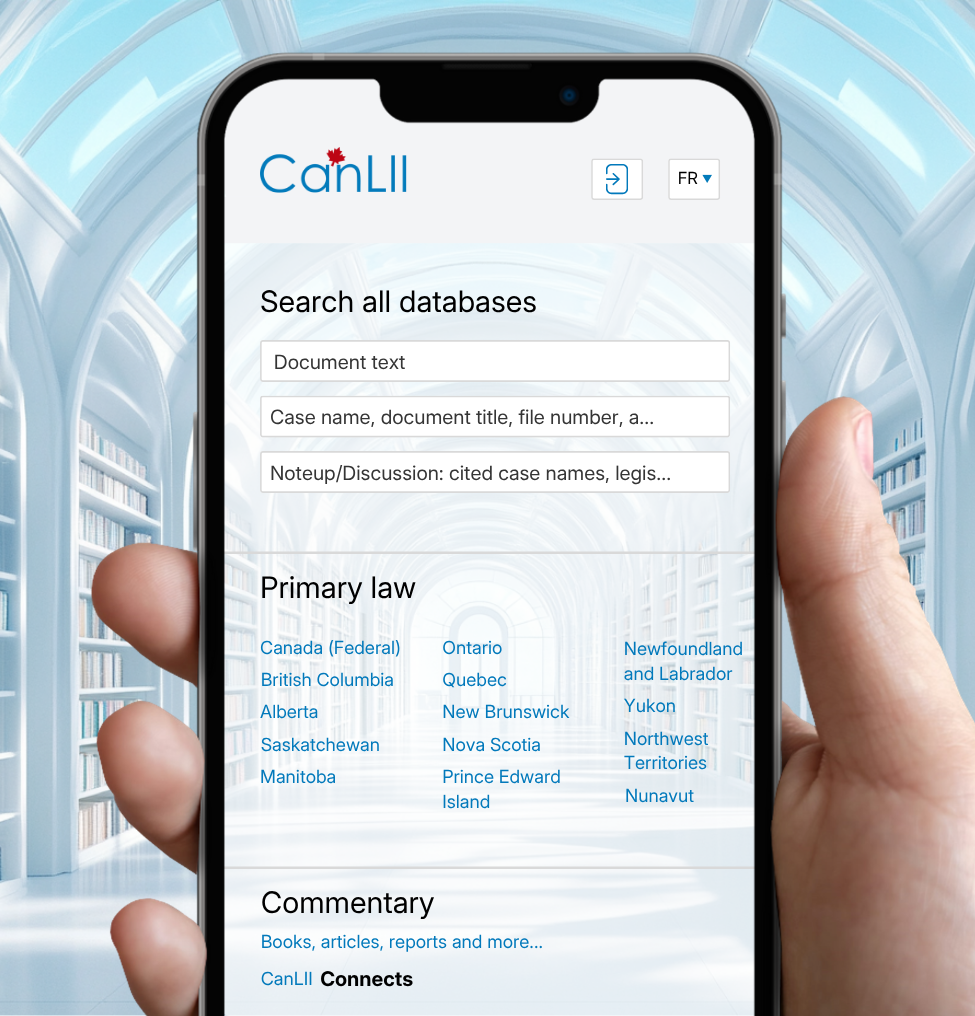Our Story
From our beginnings in a university research laboratory to the creation and operation of Canada’s most reliable legal information platform, CanLII, our journey has always been rooted in a single mission: to provide fast, simple and open access to the law.

The Problem We Set Out to Solve
In the early 1990s, access to legal information in Canada was costly and tightly controlled by commercial publishers. Primary sources of legal information —such as case law and legislation, which were created by public institutions using taxpayer dollars—came at a high price. While this approach may have made sense for academic contributions, the monetization of the law itself was becoming increasingly difficult to justify. Meanwhile, the digital revolution was underway. Court decisions were being produced in digital formats, and the Internet was emerging as a powerful, low-cost tool for distributing information at scale.
Our Beginings
Originally founded as a research lab at the Université de Montréal, we set out to challenge the status quo and embrace the potential of emerging technologies. Inspired by the growing Free Access to Law Movement (FALM), we asked a simple but transformative question: How can technology democratize access to legal information?
In 1993, we took a bold first step—becoming the first to publish Supreme Court of Canada decisions online, free of charge. It was a turning point. We proved that legal information could—and should—be open to everyone.
By the end of the decade, we were managing more than ten legal websites and helping most provinces and territories publish their statutes online.

But challenges remained. Access to case law was still uneven. Only a handful of courts shared decisions publicly, and there was no shared infrastructure between jurisdictions.

The CanLII Breakthrough
In 1999, the Federation of Law Societies of Canada proposed a bold idea: a national, freely accessible virtual law library focused entirely on primary legal materials.
The model would be open, public, and sustainable — funded through a simple fee per law society member. The proposal was approved in 2000, and a pilot project was launched in partnership with LexUM.
That pilot became CanLII.
Today, it serves millions of users across every Canadian jurisdiction, and Lexum continues to power the entire website—from full-text search and document processing to citators, alerts, and advanced AI features like classification and tagging.
In 2010, we spun off from the university to become a private company—still grounded in our original mission: to enable fast, simple, and open access to law. In 2018, we came full circle when CanLII acquired Lexum, formalizing a partnership rooted in shared purpose.
Serving Clients Across North America
Today, we serve a growing number of clients across the public and private sectors—governments, courts, bar associations, tribunals, publishers, and international organizations—helping them manage, enrich and publish their legal content online. In Canada, our partners include the Department of Justice, the Courts Administration Service (CAS), and the Administrative Tribunals Support Service of Canada (ATSSC). In the U.S., we support organizations like the New Mexico Compilation Commission, the Arkansas Judiciary, and the Oregon State Bar.

What We’re Building for the Future
We continue to push the boundaries of legal tech through innovative AI-driven features. Our newest platform, Norma, brings together everything we’ve learned over three decades—offering legal institutions a unified, powerful solution to streamline the management and publishing of legal information and improve access for the communities they serve. This is more than our story—it’s our purpose. And we’re just getting started.





